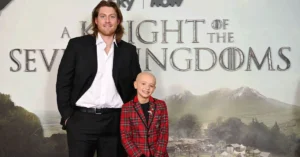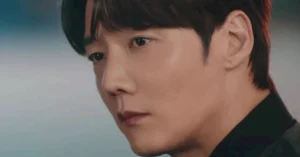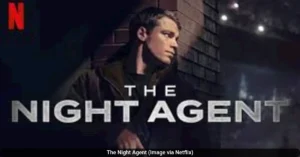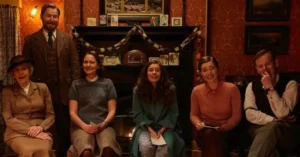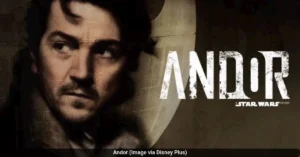In the new Apple TV series Pluribus, the fate of the world rests on the shoulders of one very unhappy person. Created by Vince Gilligan, the mind behind Breaking Bad, the show presents a unique apocalypse where a hive mind called “The Joining” has made nearly everyone on Earth blissfully happy. The lone holdout in Albuquerque is Carol Sturka, a miserable romance novelist played by Rhea Seehorn. As the story unfolds, a pressing question emerges: is Carol the hero trying to save humanity, or is her rage making her the story’s true villain?
The Unlikely Protagonist in a Happy Apocalypse
Pluribus begins with astronomers discovering a mysterious signal from space that contains a recipe for an RNA sequence. Scientists who recreate it accidentally unleash a virus that acts as a “psychic glue,” binding nearly all of humanity into a single, cheerful consciousness known as “The Joining”. This global event claims the life of Carol’s partner, Helen, and leaves Carol as one of only thirteen people immune to its effects.
Carol is the polar opposite of a traditional hero. Even before the apocalypse, she was deeply unhappy, dismissing her own best-selling “Winds of Wycaro” book series as “mindless crap” and struggling with alcohol. Vince Gilligan specifically wrote this role for Rhea Seehorn, recognizing her ability to portray a character who is a “reluctant” and “inept” savior. As Gilligan explained, the most interesting heroes are those who are “scared and lonely and sad and would rather have someone else take this mantle from them”.
“She’s definitely hoping someone else is going to lead the charge,” Seehorn said of her character. “She did not think she was going to have to do this by herself”.
The Case for Carol as the Hero
Carol’s resistance to The Joining is, on its surface, a fight for human individuality and free will. The hive mind, while peaceful, has erased personal identity and the full spectrum of human emotion. Carol is the only one who sees this as a problem and feels a responsibility to restore the world, even if no one else wants her to.
Her heroism lies in her defiant defense of what makes us human: our flaws, our struggles, and our right to choose. She is the sole voice arguing that a world without sadness, art, or personal desire is a world not worth living in. In a universe where everyone has surrendered their will, Carol’s stubborn misery is the last bastion of human independence.
The Case for Carol as the Villain
Despite her noble goals, Carol’s actions have catastrophic consequences. The show reveals that her intense negative emotions are a kryptonite to the hive mind. When she directs her fury at Zosia, the representative sent by The Joining, she triggers a global seizure that kills 11 million people. In her own words, this makes her “the biggest mass murderer since Stalin”.
Her rage, while understandable, is unchecked and destructive. Furthermore, her motivation may not be entirely selfless. Analysis of the show suggests Carol carries deep regret, including hiding her sexuality and her true creative voice in her books. Her fight against The Joining could be less about saving humanity and more about a personal refusal to find peace, making her a tragic figure whose trauma is causing worldwide harm.
A Deeper Conflict
The genius of Pluribus is that it refuses to give easy answers. The hive mind isn’t evil; it genuinely wants to share its peace and even tells Carol, “Your life is your own”. The show forces viewers to question whether true happiness requires the sacrifice of freedom, and if so, whether that sacrifice is worth it.
Carol stands at the center of this conflict. Her journey is not a simple battle of good versus evil, but a complex exploration of grief, anger, and the very definition of humanity. As the series continues, the line between hero and villain may depend entirely on your point of view.
Also Read: Tulsa King Season 3 Episode 8: Dwight Fights Bombs and Betrayal
Nice to Not Meet You Episode Schedule: New Episodes Air Every Monday and Tuesday





